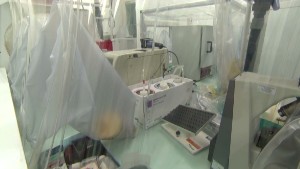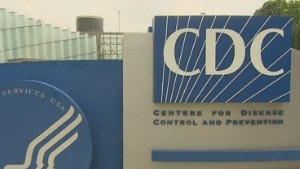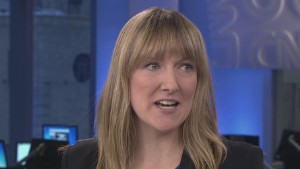- A health care worker diagnosed with Ebola in Scotland is moved to a London hospital
- She was working with Save the Children in Sierra Leone as a volunteer nurse
- A second person is being tested for Ebola in the Northwest Highlands of Scotland
- A third suspected Ebola case is being tested in the southwest of England, officials say
London (CNN) -- A health care worker who was diagnosed with the Ebola virus after returning to Scotland from Sierra Leone was transferred early Tuesday to the Royal Free Hospital in London.
The woman is Pauline Cafferkey, 39, of Glasgow, Scotland, the hospital said. She was working with Save the Children at an Ebola treatment center in Sierra Leone, said Michael von Bertele, humanitarian director at that organization.
She traveled via Casablanca, Morocco, and London Heathrow Airport before arriving at Glasgow Airport on a British Airways flight late Sunday night, the Scottish health agency NHS Scotland said.
 Ebola case confirmed in Scotland
Ebola case confirmed in Scotland After feeling unwell Monday, she sought medical attention and became the first person to be diagnosed with Ebola within the United Kingdom.
 Possible Ebola exposure from CDC mistake
Possible Ebola exposure from CDC mistake  Time editor: Ebola epidemic far from over
Time editor: Ebola epidemic far from over British media outlets said Cafferkey is a public health nurse in Scotland's South Lanarkshire area who was part of a 30-strong team of medical volunteers deployed to West Africa by the UK government last month in a joint endeavor with Save the Children.
She was reportedly transferred to London in a military aircraft fitted with an isolation pod.
The Royal Free Hospital is equipped with a high-level isolation unit, with access restricted to specially trained medical staff. A specially designed tent, with controlled ventilation, is set up over the patient's bed.
A British volunteer nurse, William Pooley, was successfully treated in the unit after he was brought home from Sierra Leone in August, having been diagnosed with Ebola there.
'Extremely low' risk
UK authorities are working to trace those who have come into contact with Cafferkey.
The Scottish government has set up a special number for people to call if they traveled on the same London Heathrow-to-Glasgow flight as Cafferkey.
British Airways said it was working closely with health authorities in England and Scotland and would help with any information needed.
"The safety and security of our customers and crew is always our top priority and the risk to people on board that individual flight is extremely low," the airline said.
Ebola patients become infectious only after they display symptoms, such as fever and vomiting. The deadly virus is spread through contact with bodily fluids.
A Downing Street spokesman told CNN that British Prime Minister David Cameron and Scottish First Minister Nicola Sturgeon had discussed the procedures in place to handle such a case.
"The Prime Minister made clear that the UK government stood ready to assist in any way possible," the spokesman said.
"They agreed that both governments would remain in close touch and ensure everything possible was done to support the patient and, although the risk to the general population remained low, all measures would be taken to protect public health."
Possible cases
Meanwhile, a second woman is being tested for Ebola in the Northwest Highlands of Scotland, a spokesman for the Scottish government told CNN.
"She will soon be transferred to Aberdeen Royal Infirmary. She was in West Africa recently although she had no direct contact with anyone with Ebola," he said.
A third suspected Ebola case is being tested in the southwest of England at the Royal Cornwall Hospital, health officials said.
"We do not expect the results to be known for at least 24 hours and in the meantime the patient is being looked after in isolation, following nationally agreed guidelines and protocols to protect the health of our staff and other patients," said a joint statement from the hospital and Public Health England, a government agency.
According to UK government guidelines, humanitarian workers returning from Ebola-affected countries in West Africa who've been at high risk of exposure are expected to monitor their own health for 21 days after they get home.
As of December 24, at least 7,693 people had died in the current Ebola outbreak, centered in Liberia, Sierra Leone and Guinea, the World Health Organization said. There have been at least 19,695 cases.
CNN's Bharati Naik contributed to this report.
No comments:
Post a Comment